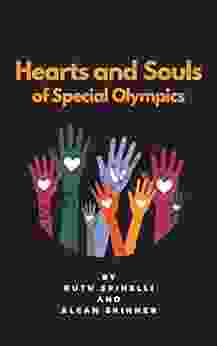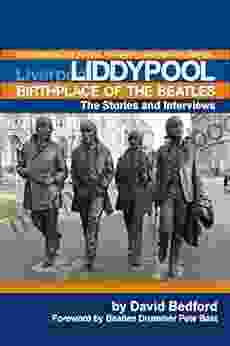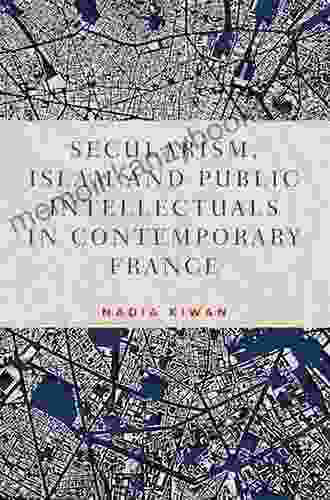Secularism, Islam, and Public Intellectuals in Contemporary France: An Exploration of Shifting Boundaries

5 out of 5
| Language | : | English |
| File size | : | 756 KB |
| Text-to-Speech | : | Enabled |
| Screen Reader | : | Supported |
| Enhanced typesetting | : | Enabled |
| Print length | : | 190 pages |
France has long been a bastion of secularism, with the principle of laïcité deeply embedded in its national identity. However, the increasing presence of Islam in French society in recent decades has challenged this traditional understanding of secularism, leading to ongoing debates and tensions regarding religious freedom, state-religion relations, integration, and assimilation.
This article will explore the complex interplay between secularism, Islam, and public intellectuals in contemporary France. We will examine the shifting boundaries of secularism as a concept and practice, the role of public intellectuals in shaping these boundaries, and the implications for religious freedom, social cohesion, and cultural diversity in French society.
Secularism in France: A Brief History
The French concept of secularism has its roots in the Enlightenment and the French Revolution. Laïcité, as it is known in France, is more than just the separation of church and state; it is a principle that pervades all aspects of public life and seeks to ensure the neutrality of the state regarding religion.
The French constitution and laws strictly prohibit religious symbols or practices in public schools, government buildings, and other official spaces. This is intended to create a space where all citizens, regardless of their religious beliefs or lack thereof, can feel equally at home and respected.
The Rise of Islam in France
In the post-World War II era, France experienced a significant influx of Muslim immigrants, primarily from North Africa. This led to the establishment of sizable Muslim communities in France, particularly in urban areas.
The presence of a large Muslim population has raised questions about the compatibility of Islam with French secularism. Some argue that Islam is inherently incompatible with secular values, while others contend that it is possible to reconcile the two. This debate has played out in various spheres of French society, including politics, education, and the media.
Public Intellectuals and the Secularism Debate
Public intellectuals have played a pivotal role in shaping the discourse on secularism and Islam in France. These thinkers, writers, and scholars have engaged in lively debates about the limits of secularism, the rights of religious minorities, and the future of French society.
Prominent public intellectuals such as Tariq Ramadan, Olivier Roy, and Michel Onfray have argued for a more inclusive and flexible understanding of secularism, one that accommodates the increasing diversity of French society. They contend that it is possible to maintain the core principles of secularism while recognizing and respecting the rights of religious believers.
However, other public intellectuals, such as Pascal Bruckner and Alain Finkielkraut, have taken a more critical stance toward Islam. They argue that Islam is a threat to French values and that it is necessary to defend secularism against what they perceive as a encroaching religious influence.
Shifting Boundaries of Secularism
The debates and controversies surrounding Islam in France have led to a shift in the boundaries of secularism. While the principle of laïcité remains firmly in place, its interpretation and application have evolved in response to the changing realities of French society.
For example, there has been a growing recognition of the need to accommodate the religious practices of Muslim minorities. This has led to the construction of mosques and prayer spaces in various parts of France, as well as the recognition of certain religious holidays.
At the same time, there has also been a backlash against what some perceive as a blurring of the boundaries between religion and state. This has led to increased scrutiny of Islamic institutions and practices, as well as debates about the limits of religious expression in public life.
Implications for Religious Freedom and Social Cohesion
The shifting boundaries of secularism in France have significant implications for religious freedom and social cohesion. On the one hand, the recognition of the rights of religious minorities and the accommodation of their practices can contribute to a more inclusive and tolerant society.
On the other hand, the backlash against Islam and the increased scrutiny of religious expression can create a climate of fear and suspicion among Muslim communities. This can undermine social cohesion and make it more difficult for Muslims to feel fully integrated into French society.
The relationship between secularism, Islam, and public intellectuals in contemporary France is a complex and ever-evolving one. The debates and controversies surrounding this issue have led to a shift in the boundaries of secularism, with implications for religious freedom, social cohesion, and cultural diversity.
As France navigates the challenges of the 21st century, it will be crucial to find ways to reconcile the principles of secularism with the growing diversity of its population. This will require a nuanced and inclusive approach that respects the rights of all citizens, regardless of their beliefs.
Bibliography
- Brubaker, Rogers. Citizenship and Nationhood in France and Germany. Harvard University Press, 1992.
- Calhoun, Craig. "Secularism and Public Intellectuals." In Secularism and Its Critics, edited by Craig Calhoun, Michael J. Warner, and Jonathan Van Antwerpen. Oxford University Press, 2011.
- Finkielkraut, Alain. The Identity Crisis: Muslims and the Challenge to Secularism in France. Columbia University Press, 2013.
- Hafez, Farid. Islamophobia in France. Palgrave Macmillan, 2012.
- Roy, Olivier. Islam and Resistance in France. Columbia University Press, 2012.
- Scott, Joan Wallach. The Politics of the Veil. Princeton University Press, 2007.
5 out of 5
| Language | : | English |
| File size | : | 756 KB |
| Text-to-Speech | : | Enabled |
| Screen Reader | : | Supported |
| Enhanced typesetting | : | Enabled |
| Print length | : | 190 pages |
Do you want to contribute by writing guest posts on this blog?
Please contact us and send us a resume of previous articles that you have written.
 Book
Book Novel
Novel Page
Page Chapter
Chapter Text
Text Story
Story Genre
Genre Reader
Reader Library
Library Paperback
Paperback E-book
E-book Magazine
Magazine Newspaper
Newspaper Paragraph
Paragraph Sentence
Sentence Bookmark
Bookmark Shelf
Shelf Glossary
Glossary Bibliography
Bibliography Foreword
Foreword Preface
Preface Synopsis
Synopsis Annotation
Annotation Footnote
Footnote Manuscript
Manuscript Scroll
Scroll Codex
Codex Tome
Tome Bestseller
Bestseller Classics
Classics Library card
Library card Narrative
Narrative Biography
Biography Autobiography
Autobiography Memoir
Memoir Reference
Reference Encyclopedia
Encyclopedia Patrick Quillin
Patrick Quillin Andrea Ridout
Andrea Ridout Andrew Duguid
Andrew Duguid Robin Hollo
Robin Hollo Peter Cartwright
Peter Cartwright Margaret Brennan Hassett
Margaret Brennan Hassett Amy Willcock
Amy Willcock George Johnson
George Johnson Marissa Hermer
Marissa Hermer Amy Meltzer
Amy Meltzer Manuela Mischke Reeds
Manuela Mischke Reeds Blkcm Bnkcm
Blkcm Bnkcm Chris Stuart
Chris Stuart Edgar Cayce
Edgar Cayce Sasha
Sasha Amy Lyric
Amy Lyric Amy Instant
Amy Instant Kirsten Hartvig
Kirsten Hartvig Tasunke Maka
Tasunke Maka Amy Crenn
Amy Crenn
Light bulbAdvertise smarter! Our strategic ad space ensures maximum exposure. Reserve your spot today!

 Jorge Luis BorgesThe Essential Guide to Marketing in the Digital World: Unleashing the Power...
Jorge Luis BorgesThe Essential Guide to Marketing in the Digital World: Unleashing the Power...
 Leon FosterModern Myth of Things Seen in the Sky: Routledge Classics - A Comprehensive...
Leon FosterModern Myth of Things Seen in the Sky: Routledge Classics - A Comprehensive...
 Terry PratchettShattering HIV/AIDS Misconceptions: Exposing the Myths, 16th Anniversary...
Terry PratchettShattering HIV/AIDS Misconceptions: Exposing the Myths, 16th Anniversary...
 Paulo CoelhoUnlock the Culinary Secrets of Italy's Finest Home Cooks: An Exploration of...
Paulo CoelhoUnlock the Culinary Secrets of Italy's Finest Home Cooks: An Exploration of... Asher BellFollow ·2.1k
Asher BellFollow ·2.1k Junichiro TanizakiFollow ·2.7k
Junichiro TanizakiFollow ·2.7k Cody RussellFollow ·2.4k
Cody RussellFollow ·2.4k Alexandre DumasFollow ·2.1k
Alexandre DumasFollow ·2.1k Isaiah PowellFollow ·4.7k
Isaiah PowellFollow ·4.7k Xavier BellFollow ·2k
Xavier BellFollow ·2k Dean ButlerFollow ·4.6k
Dean ButlerFollow ·4.6k Corey HayesFollow ·5.6k
Corey HayesFollow ·5.6k

 Miguel Nelson
Miguel NelsonFour Cookbooks In One: Recipes To Fight Cancer, Heart...
Looking for a healthy way...

 Marcus Bell
Marcus BellHearts and Souls: Exploring the Lives and Legacies of...
The Special Olympics movement has been a...

 Tony Carter
Tony CarterDiagnosed With Breast Cancer: Navigating Life After the...
A breast cancer diagnosis can be a...

 Joe Simmons
Joe SimmonsLiddypool: The Stories and Interviews – A Literary...
In the realm of...

 Jett Powell
Jett PowellBreakfast for Boneheads: 66 Breakfast Recipes for Lazy...
Are you tired of eating the...
5 out of 5
| Language | : | English |
| File size | : | 756 KB |
| Text-to-Speech | : | Enabled |
| Screen Reader | : | Supported |
| Enhanced typesetting | : | Enabled |
| Print length | : | 190 pages |






